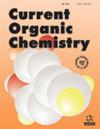Improved Stability of Aspergillus oryzae α-Amylase Immobilized on Polyaniline Tin Oxide Nanocomposites
IF 2.1
3区 化学
Q3 CHEMISTRY, ORGANIC
引用次数: 0
Abstract
: In the present study, an immobilization support, Polyaniline tin oxide nanocomposite (PANI-SnO2- NC) was synthesized by in situ polymerization of aniline and ammonium peroxydisulphate. The prepared nanocomposite was characterized by various state-of-the-art techniques. The average size of native SnO2-NPs and PANI-SnO2-NC was 65±19 nm and 93±15 nm, respectively. An important industrial enzyme, α-amylase from Aspergillus oryzae was immobilized on PANI-SnO2-NC, which retained 87% enzyme activity. The improved stability of the immobilized enzyme was noticed against pH and temperature, as it retained 65% activity at 60 °C while the free enzyme exhibited 41% activity under similar experimental conditions. Moreover, PANI-SnO2- NC-immobilized α-amylase produced starch (26.42 mg mL–1) more efficiently than free enzyme (20.90 mg mL– 1) after 8 h in batch hydrolysis. PANI-SnO2-NC-bound α-amylase exhibited 54% activity after eight repeated uses. Molecular docking analysis of α-amylase with PANI suggested the ligand binding site to be located quite far away from the active site of the enzyme.提高固定在聚苯胺氧化锡纳米复合材料上的黑曲霉α-淀粉酶的稳定性
:本研究通过苯胺和过氧化二硫酸铵的原位聚合合成了一种固定化支持物--聚苯胺氧化锡纳米复合材料(PANI-SnO2- NC)。所制备的纳米复合材料通过各种最先进的技术进行了表征。原生 SnO2-NPs 和 PANI-SnO2-NC 的平均尺寸分别为 65±19 nm 和 93±15 nm。在 PANI-SnO2-NC 上固定了一种重要的工业酶,即来自黑曲霉的 α 淀粉酶,其酶活性保持率为 87%。固定化酶在 pH 值和温度条件下的稳定性得到了提高,在 60 °C 的条件下,固定化酶保持了 65% 的活性,而游离酶在类似的实验条件下只有 41% 的活性。此外,批量水解 8 小时后,PANI-SnO2-NC-固定化α-淀粉酶产生淀粉(26.42 毫克毫升/升-1)的效率高于游离酶(20.90 毫克毫升毫升-1)。重复使用八次后,PANI-SnO2-NC 结合的 α 淀粉酶显示出 54% 的活性。α-淀粉酶与 PANI 的分子对接分析表明,配体结合位点距离酶的活性位点相当远。
本文章由计算机程序翻译,如有差异,请以英文原文为准。
求助全文
约1分钟内获得全文
求助全文
来源期刊

Current Organic Chemistry
化学-有机化学
CiteScore
3.70
自引率
7.70%
发文量
76
审稿时长
1 months
期刊介绍:
Current Organic Chemistry aims to provide in-depth/mini reviews on the current progress in various fields related to organic chemistry including bioorganic chemistry, organo-metallic chemistry, asymmetric synthesis, heterocyclic chemistry, natural product chemistry, catalytic and green chemistry, suitable aspects of medicinal chemistry and polymer chemistry, as well as analytical methods in organic chemistry. The frontier reviews provide the current state of knowledge in these fields and are written by chosen experts who are internationally known for their eminent research contributions. The Journal also accepts high quality research papers focusing on hot topics, highlights and letters besides thematic issues in these fields. Current Organic Chemistry should prove to be of great interest to organic chemists in academia and industry, who wish to keep abreast with recent developments in key fields of organic chemistry.
 求助内容:
求助内容: 应助结果提醒方式:
应助结果提醒方式:


